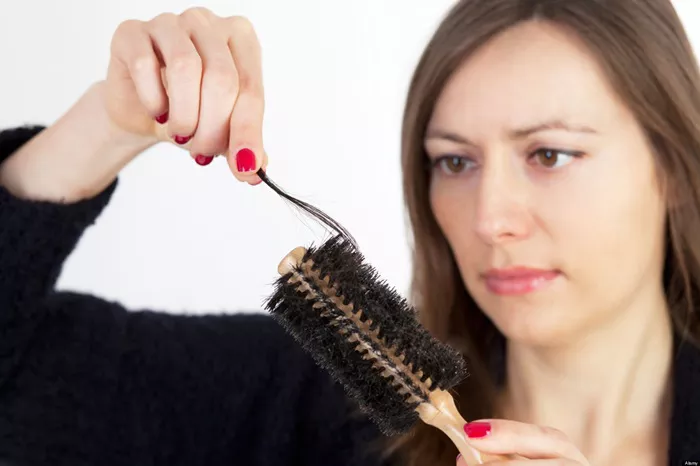Chemotherapy is a common treatment for cancer, but it often comes with a range of side effects, one of the most distressing being hair loss. This article aims to provide a comprehensive understanding of when hair loss typically occurs during chemotherapy, the factors that influence it, and ways to cope with this significant change.
Hair loss during chemotherapy can be emotionally challenging for many individuals. While it’s a common side effect, understanding the timeline and reasons behind it can help patients prepare mentally and emotionally for the journey ahead.
Understanding Chemotherapy and Hair Loss
Chemotherapy works by targeting rapidly dividing cells, a characteristic of cancer cells. However, it can also affect other fast-growing cells in the body, including hair follicles. The extent and timing of hair loss can vary significantly depending on several factors.
Why Does Chemotherapy Cause Hair Loss?
Chemotherapy drugs are designed to kill cancer cells, but they can also affect healthy cells, particularly those in the hair follicles. This disruption can lead to hair thinning or complete hair loss, medically known as alopecia.
When Does Hair Loss Start During Chemotherapy?
General Timeline
The timeline for hair loss can vary based on the type of chemotherapy drugs used, the dosage, and individual patient factors. Here’s a general breakdown:
Initial Treatment Phase (Weeks 1-2): Hair loss typically begins within one to three weeks after starting chemotherapy. Some patients may notice increased shedding or thinning during this period.
Peak Shedding (Weeks 3-4): Hair loss may become more pronounced as the treatment continues. By the end of the first month, many patients will notice significant thinning or patches of hair loss.
Complete Hair Loss (Weeks 4-6): For those undergoing more aggressive chemotherapy regimens, complete hair loss can occur within four to six weeks. However, this varies widely among individuals.
Post-Treatment Regrowth (Months 3-6): After completing chemotherapy, hair regrowth may begin, although it can take several months for hair to return to its previous thickness and texture.
Factors Influencing Hair Loss Timing
Several factors can influence when and how much hair loss a patient experiences during chemotherapy:
Type of Chemotherapy Drugs: Some chemotherapy drugs are more likely to cause hair loss than others. Drugs such as doxorubicin, cyclophosphamide, and paclitaxel are well-known for this side effect.
Dosage and Treatment Schedule: Higher doses and more frequent treatments may increase the likelihood of hair loss.
Individual Health Factors: Each person’s body responds differently to chemotherapy. Genetic factors, overall health, and prior hair conditions can influence the degree of hair loss.
Hair Type and Texture: Individuals with finer hair may notice hair loss more quickly than those with thicker hair.
Preparing for Hair Loss
Understanding the likelihood of hair loss can help patients prepare mentally and emotionally. Here are some steps to consider:
1. Consult with Your Oncologist
Discuss potential side effects, including hair loss, during your treatment planning. Understanding what to expect can help alleviate anxiety.
2. Consider a Support System
Talk to friends, family, or support groups about your feelings regarding hair loss. Having a support system can make the process more manageable.
3. Explore Options for Hair Preservation
Some patients choose to explore cold cap therapy, which involves wearing a cooling cap during chemotherapy to help minimize hair loss. Discuss this option with your oncologist.
4. Plan for the Transition
Consider how you want to handle the transition. Some patients choose to cut their hair shorter before starting treatment, while others may opt for wigs or head coverings.
Coping with Hair Loss
Experiencing hair loss can be emotionally taxing. Here are some coping strategies:
1. Acknowledge Your Feelings
It’s normal to feel a range of emotions about hair loss, including sadness, anger, or frustration. Allow yourself to experience these feelings and seek support if needed.
2. Explore Alternative Hair Solutions
Wigs, scarves, and hats can provide comfort and confidence. Many organizations offer resources to help patients find suitable options.
3. Focus on Self-Care
Engage in self-care activities that make you feel good. Whether it’s skincare, makeup, or hobbies, maintaining a routine can help you cope with the changes.
4. Connect with Others
Joining support groups or online forums can help you connect with others experiencing similar challenges. Sharing experiences can provide comfort and insight.
Hair Regrowth After Chemotherapy
Timeline for Regrowth
Once chemotherapy ends, hair regrowth typically begins within three to six months. However, the timeline can vary widely:
Initial Growth: Fine, soft hair may appear first. This is often refer red to as “peach fuzz.”
Thicker Hair Development: Over time, hair will become thicker and more resilient, although it may differ in texture or color from your original hair.
Caring for New Hair Growth
As your hair begins to regrow, caring for it properly is essential:
Gentle Washing: Use a mild shampoo to avoid irritating the scalp.
Avoid Heat Styling: Minimize the use of heat tools to protect delicate new hair.
Nutrition Matters: A balanced diet rich in vitamins and minerals can support healthy hair growth.
Conclusion
Hair loss during chemotherapy can be an emotional experience, but understanding when it occurs and how to cope can make the process easier. By preparing for the possibility of hair loss, seeking support, and exploring options for hair preservation and regrowth, individuals can navigate this journey with greater confidence. Remember, you are not alone, and there are resources available to help you through this challenging time.
Related topics:
- Understanding Male Pattern Baldness: When Does It Start?
- When to Worry About Hair Loss: Understanding the Signs
- Telogen Effluvium: When It Starts and What to Expect


